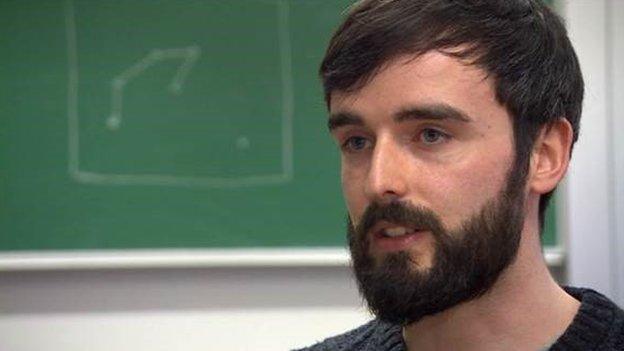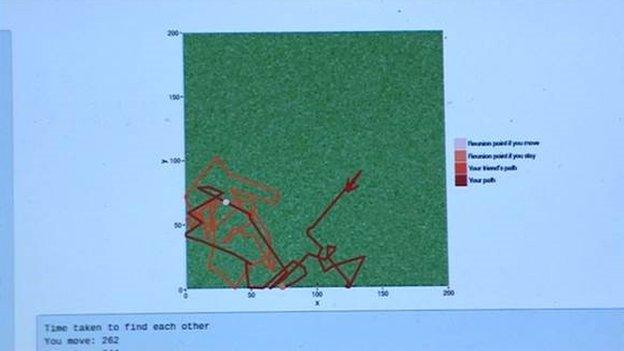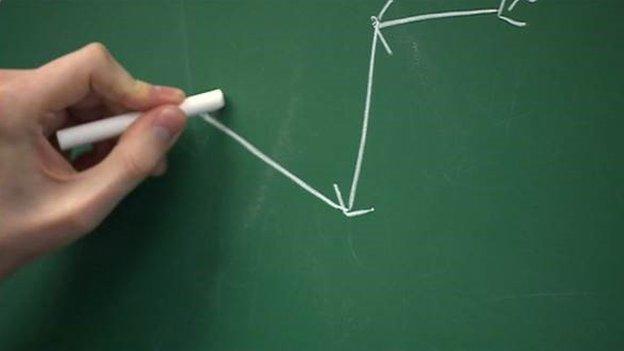Stay still or search? Finding a lost friend in a crowd
- Published

Nathan Cunningham started work on the problem after attending music festivals with his friends
This is the season to lose friends in a crowd.
Be it the Boxing Day sales or a new year's party then the chances are you'll turn your back for a second and people just wander off.
So what's the optimum strategy for finding your friends or family in as short a time as possible?
Should you stay put and wait for them to find you or head off and hope to track them down yourself?
Fortunately statistician Nathan Cunningham, from the University of Warwick, has been crunching the numbers.
He's run thousands of simulations to see which is the best option.
Stand still or set off on a search?
Simulation

Nathan Cunningham’s computer program has simulated 100,000 typical searches
For Nathan this was borne out of a desire to work out the best way of finding his friends at a music festival.
He set up a computer simulation and left it to run.
Little virtual friends tried to find each other 100,000 times.
The end result?
If both of you set out to find the other, you will usually achieve your goal faster than if one of you stays put and waits to be found.
And of course if both of you stay put, then you're not going to have any luck at all.
Sometimes you could wait 50% longer to find a friend if you chose to stay put rather than if you both start searching.
Try it yourself

The optimum method to find a friend in a crowd involves some changes of direction
Chatting with Nathan about all this, he said after he'd published all this it turned out that, apparently, this sort of problem is a well studied area of statistics.
Fortunately, his simulations matched up with the current theory.
So if you get separated from your friends in a crowd don't stand around and wait for them, set off to find them and hope they do the same as well.
Not convinced?
Well try it yourself in the real world or read Nathan's paper, external and try his simulations for yourself here, external.
Or you can even can tinker with Nathan's code here, external.